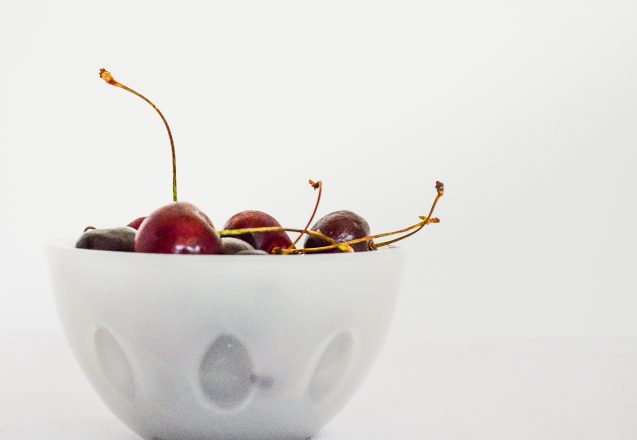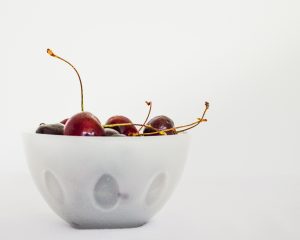Are There Health Benefits To Journaling
 There are so many things to do in Oceanside, that it’s easy to get sidetracked and skip a lunch. I have clients that do it all the time. Instead of lunch, they grab snacks throughout the day, without considering just how many calories or the type of food they’re eating. When I explain the health benefits to journaling and they start, not only are they amazed at how much they eat, they’re amazed at how unhealthy they eat.
There are so many things to do in Oceanside, that it’s easy to get sidetracked and skip a lunch. I have clients that do it all the time. Instead of lunch, they grab snacks throughout the day, without considering just how many calories or the type of food they’re eating. When I explain the health benefits to journaling and they start, not only are they amazed at how much they eat, they’re amazed at how unhealthy they eat.
Record everything you eat and drink.
With today’s technology, you can use a smartphone to track your food. There’s no need to add up calories as you go. You can always do that later. The more information you put down, the more helpful it is. If you note your mood, where you were at or the circumstances when you ate, you’ll get more insight into why you eat. For instance, if was a bad day at work and you stop and grab a candy bar, you might find you’re a stress eater. Have an apple or sweet fruit ready for those stressful times or learn a technique for coping that doesn’t require crunching.
You may be eating really healthy, but find out that what you’re drinking is the real problem.
Many people try to eat really healthily, but still can’t lose weight. They may have proof in their journaling of how healthy they’re eating, but fail to note the liquids they’re drinking with their meals. In many cases, it’s a soft drink. Soft drinks may seem innocent, but they’re not. They’re loaded with sugar and have a negative impact on your health. If you drink only one 8-ounce cup of cola with a meal, you’ll boost your calorie count by three hundred calories a day. Imagine how many calories you’ll add with those super sized drinks several times a day. Alcoholic drinks are also as high in calories per gram as fat.
Use your food journaling to find out why you feel bad.
If you find you feel great until you eat, then either get indigestion, bloating or other digestive problems, food journaling is perfect. Listing everything you eat and how you feel, both before and after a meal can help you find the offending food or drink. Rather than seeking medical attention empty handed, having a food journal with information on symptoms as they relate to food, can provide greater insight and help for your medical professional. Some people find that just by eliminating the offending food or foods, such as dairy products, they no longer feel chronically ill.
- One important lesson from food journaling is learning what a portion size is. It’s easier to track when you find easy ways to identify portion size and will amaze you at how much you really eat.
- Tracking your food helps you identify those small snacks you mindlessly eat throughout the day. You’ll be more aware of how many times you grabbed a handful of M&Ms or chips as you passed by the bowl or bag.
- You’ll be able to monitor your intake of macronutrients so you can balance percentages of carbs, fat and protein.
- One study showed that people who didn’t diet, but simply journaled lost weight over a three month period compared to people who didn’t.



 One of the first fitness tips for beginners that I always give is that you’re not competing against anyone but yourself. You’re also not going to the gym to impress anyone, so don’t worry about getting the latest gym clothing. Wear something comfortable that also supports you through jumping jacks and pushups. Wear something that’s made of fabric that breathes and fits well. Try on the clothing before you buy it and make moves that you think mimic those you’ll do in the gym. When it’s winter, layer clothing and always make sure you have comfortable supportive shoes.
One of the first fitness tips for beginners that I always give is that you’re not competing against anyone but yourself. You’re also not going to the gym to impress anyone, so don’t worry about getting the latest gym clothing. Wear something comfortable that also supports you through jumping jacks and pushups. Wear something that’s made of fabric that breathes and fits well. Try on the clothing before you buy it and make moves that you think mimic those you’ll do in the gym. When it’s winter, layer clothing and always make sure you have comfortable supportive shoes.
 Fat is not the enemy, neither are carbs or any other food group. However, junk food does not constitute a food group any more than potato chips count as a vegetable. Here in Oceanside, CA, I preach about eating healthy and balanced. While foods like avocado, cheese, nuts and hard boiled eggs make great snacks, they’re also high in fat. If you’ve consumed more fat than you should throughout the day, skip these as a snack and opt for low fat snacks.
Fat is not the enemy, neither are carbs or any other food group. However, junk food does not constitute a food group any more than potato chips count as a vegetable. Here in Oceanside, CA, I preach about eating healthy and balanced. While foods like avocado, cheese, nuts and hard boiled eggs make great snacks, they’re also high in fat. If you’ve consumed more fat than you should throughout the day, skip these as a snack and opt for low fat snacks.
 Have you scrolled through all the programs on TV, procrastinating that first trip to the gym? You’re not alone. People who have never trained or haven’t trained in years are often intimidate when it comes to their first trip to start. The first of the fitness tips for beginners is to “just do it!” Don’t overthink that first visit. It won’t be anything like you thought it would be, no matter what you’re thinking. You’ll either be able to do far more than you thought or far less. If you don’t have a personal trainer, it might be time to consider one, so you know you’re pushing toward your maximum potential.
Have you scrolled through all the programs on TV, procrastinating that first trip to the gym? You’re not alone. People who have never trained or haven’t trained in years are often intimidate when it comes to their first trip to start. The first of the fitness tips for beginners is to “just do it!” Don’t overthink that first visit. It won’t be anything like you thought it would be, no matter what you’re thinking. You’ll either be able to do far more than you thought or far less. If you don’t have a personal trainer, it might be time to consider one, so you know you’re pushing toward your maximum potential.
 If you’ve ever wondered what the benefits of a workout partner are, you probably aren’t working with a personal trainer. A trainer is the ultimate workout partner. Whether you workout with a personal trainer or a workout partner, you’re accountable for showing up at the gym. On those overcast winter days when going home sounds like the best idea, you’ll still go for your workout because you have an appointment to meet with someone.
If you’ve ever wondered what the benefits of a workout partner are, you probably aren’t working with a personal trainer. A trainer is the ultimate workout partner. Whether you workout with a personal trainer or a workout partner, you’re accountable for showing up at the gym. On those overcast winter days when going home sounds like the best idea, you’ll still go for your workout because you have an appointment to meet with someone.
 Having a healthy sex drive is not only a sign of good health, but also an aid to improving your health. Sex stimulates the brain to produce oxytocin. It’s called the cuddle hormone or the love hormone for obvious reasons. This hormone promotes bonding with sexual partners and also improves sleep. If your partner dozes off right after sex, it probably means they’ve experienced an orgasm, since the hormone is released during it. It not only boosts intimacy, it provides relief from pain. Oxytocin also provides other health benefits that occur during an orgasm.
Having a healthy sex drive is not only a sign of good health, but also an aid to improving your health. Sex stimulates the brain to produce oxytocin. It’s called the cuddle hormone or the love hormone for obvious reasons. This hormone promotes bonding with sexual partners and also improves sleep. If your partner dozes off right after sex, it probably means they’ve experienced an orgasm, since the hormone is released during it. It not only boosts intimacy, it provides relief from pain. Oxytocin also provides other health benefits that occur during an orgasm.

 If you always dreamed of 6-pack abs, don’t dismay. It’s possible to get them, but not easy. It’s often on of the first things clients at my Oceanside, CA gym say they want to achieve, but there are steps to reaching that goal. It’s more than just doing a few ab exercises. You have to reduce the body fat that covers them so they show. Some people, approximately half the population, will have problems getting a six-pack that shows. That’s because they’re women. Women generally have higher healthy body fat levels than men, so men can safely reduce their body fat low enough for the definition of the abs to show.
If you always dreamed of 6-pack abs, don’t dismay. It’s possible to get them, but not easy. It’s often on of the first things clients at my Oceanside, CA gym say they want to achieve, but there are steps to reaching that goal. It’s more than just doing a few ab exercises. You have to reduce the body fat that covers them so they show. Some people, approximately half the population, will have problems getting a six-pack that shows. That’s because they’re women. Women generally have higher healthy body fat levels than men, so men can safely reduce their body fat low enough for the definition of the abs to show.
 If you’ve spent long hours during the week, thinking you’ll catch up on the weekend, you are on the road to failure. The truth is, you really can’t catch up on sleep in two days. The importance of consistent sleep schedule should make it one of your top priorities. You probably already work out and maintain a healthy diet, but fail when it comes to getting adequate sleep. That can take its toll on your health. Not everyone needs eight hours of sleep, some need more, while others can function on as little as six, but if you’re tired during the day, you’re either getting poor quality sleep or not enough.
If you’ve spent long hours during the week, thinking you’ll catch up on the weekend, you are on the road to failure. The truth is, you really can’t catch up on sleep in two days. The importance of consistent sleep schedule should make it one of your top priorities. You probably already work out and maintain a healthy diet, but fail when it comes to getting adequate sleep. That can take its toll on your health. Not everyone needs eight hours of sleep, some need more, while others can function on as little as six, but if you’re tired during the day, you’re either getting poor quality sleep or not enough.
 If you’ve ever noticed your posture when everything is going wrong or you’re feeling miserable, you’ll probably notice it’s not it’s best and you have that “hang dog” appearance. Good posture makes a huge difference in how people perceive you. If you walk straight and tall, you’ll look confident. Even if you’re not confident, that look can help you in every walk of life. There’s also a saying, “Fake it until you can make it.” Looking confident allows you to build that confidence.
If you’ve ever noticed your posture when everything is going wrong or you’re feeling miserable, you’ll probably notice it’s not it’s best and you have that “hang dog” appearance. Good posture makes a huge difference in how people perceive you. If you walk straight and tall, you’ll look confident. Even if you’re not confident, that look can help you in every walk of life. There’s also a saying, “Fake it until you can make it.” Looking confident allows you to build that confidence.